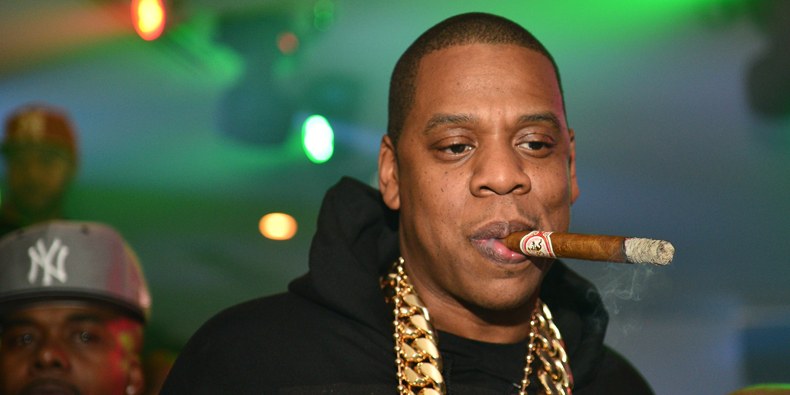Nine years ago, two unlikely lunch partners sat down at the Hollywood Diner in Omaha, Nebraska. One, Warren Buffett, was a regular there. The other, Jay-Z, was not. The billionaire and the rapper ordered strawberry malts and chatted amiably, continuing the conversation back at Buffett’s Berkshire Hathaway offices.
Buffett, then 80, walked away impressed with the artist 40 years his junior: “Jay is teaching in a lot bigger classroom than I’ll ever teach in. For a young person growing up, he’s the guy to learn from.”
Less than a decade later, it’s clear that Jay-Z has accumulated a fortune that conservatively totals $1 billion, making him one of only a handful of entertainers to become a billionaire—and the first hip-hop artist to do so. Jay-Z’s steadily growing kingdom is expansive, encompassing liquor, art, real estate (homes in Los Angeles, the Hamptons, Tribeca) and stakes in companies like Uber.
Read Also: 2Baba emerges NSE ambassador
His journey is all the more impressive given its start: Brooklyn’s notorious Marcy housing projects. He was a drug dealer before becoming a musician, starting his own label, Roc-A-Fella Records, to release his 1996 debut, Reasonable Doubt. Since then he’s amassed 14 No. 1 albums, 22 Grammy awards and over $500 million in pretax earnings in a decade.
Crucially, he realized that he should build his own brands rather than promote someone else’s: the clothing line Rocawear, started in 1999 (soldfor $204 million to Iconix in 2007); D’Ussé, a cognac he co-owns with Bacardi; and Tidal, a music-streaming service.
Kasseem “Swizz Beatz” Dean, the superproducer behind some of Jay-Z’s biggest hits (“On To The Next One,” Beyoncé’s “Upgrade U”), looks at Jay-Z as something others can model: “It’s bigger than hip-hop … it’s the blueprint for our culture. A guy that looks like us, sounds like us, loves us, made it to something that we always felt that was above us.”
Read More
